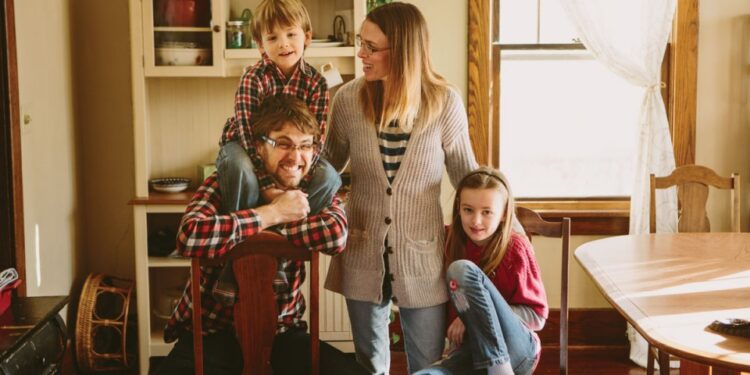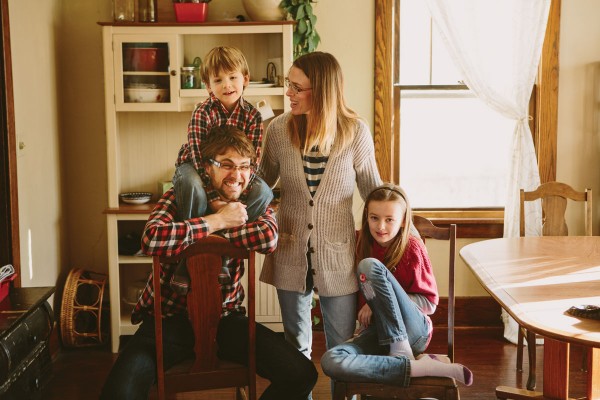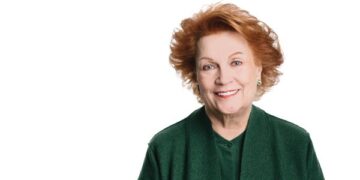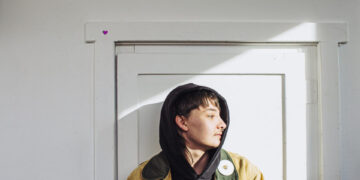Originally published in March/April 2015 Omaha Magazine.
These pages often feature nonprofits that have the power to draw from scores of volunteers supported by a paid staff backed by a who’s-who-in-Omaha board infrastructure in serving broad and far-flung community needs. Sponsored events and fundraisers may attract hundreds, even thousands, of generous, like-minded people in raising big money to propel mission statements.
Eric Purcell’s role is…well, a little different. He’s an army of one.
“I certainly don’t feel alone,” says the area’s sole representative of Beta Communities. “Sure, this is my job, and I’m the only one that happens to be doing this for Beta here in Omaha, but when your thing is to work in the community, you can never really be alone.”
Beta Communities, the organization’s website explains, is a missionary order—embedded locally and sent globally—that develops leaders to deeply inhabit their place in the way of Jesus and, in doing so, live out their vocational call in the world.
Purcell points to a photo collage in his living room in making a point on Beta Communities’ values. He took five snapshots of random objects (the letter “O,” for example, is rendered in the form of an overhead image of a coffee cup) to spell out oikos, the ancient Greek word for household.
“But the word goes beyond the idea of a mere structure or a home,” Purcell adds. “It speaks more to the idea of family, extended family, and the wider community. The word ‘economy,’ for example, is also derived from oikos, and indicates a system of interactions, just like the interactions we have in our mission.”
The “we” in Purcell’s thoughts above is a nod to his wife, Lisa, who is Eric’s constant companion in his work. She is a stay-at-home mom who homeschools the couple’s children, Norah (9), and Brennen (5) in their home that overlooks Gifford Park (see related story on page H24 for more on the Gifford Park neighborhood).
“There’s something almost countercultural in what we do,” says Lisa. “I’m a stay-at-home mom. I’m a homeschooling mom. Because of that, it’s sometimes hard for me to easily define my role in Eric’s work, but this ministry is something we birthed together,” she says as Eric nods his head in agreement. “We are in this together, even though he’s the paid staff member. He has the ‘office hours’ [even though there is no office], but together we find a way to fill things in. His work has no context unless everything points back to our life together; our life with the kids, our life in the community, our life in this mission. Sometimes I feel like I’m on the outside looking in, but I know that isn’t really the case at all.”
“And neighborhoods,” Eric explains, “can never be looked at as a one-man anything. It just doesn’t work that way. Being a neighbor, most importantly, starts with a lot of listening.” Eric adds that they believe that a community’s strength is measured in the number of people who, as the Beta values state, “deeply inhabit” their surroundings, the people who are invested in a neighborhood on all levels.
The couple recently hosted their own little “investor meeting,” what Beta Communities calls a Cohort. It’s a weekend immersion experience with friends and neighbors that features a slate of guided conversations in sessions that center around the idea of imaging better communities and the individual’s power to affect change. Their most recent Cohort had a decidedly local, even walkable flavor, but two friends involved in community arts efforts in Wichita, Kansas, also travelled for the Cohort to learn more about what was happening in Omaha.
Just like the area’s community gardens that will soon sprout with the promise of another leafy bounty, Eric explains that the couple’s work is equally organic. “That’s because a lot of our involvement comes through our work with the [Gifford Park] Neighborhood Association,” where Eric just completed two consecutive terms as president of the group. “Very few people in this neighborhood know what Beta is. They may never have even heard us use the word, and we’re okay with that.”
The Gifford Park Neighborhood Association is one of the strongest and most active in the community, but even the most robust of programs face challenges, Eric says. The area is home to neighbors hailing from more than 20 nations. Income levels are all over the map. Many of the Purcell’s neighbors are learning English.
“Maybe it’s getting kids to kick a soccer ball around,” Eric says in pointing across the street to Gifford Park’s used soccer nets donated by the city. “That’s one way to connect. Maybe it’s our Summer Tennis Program or the community gardens. That’s how it works.” You find a way to bring people together, he says, and good things start to happen.
And that, these most non-traditional of missionaries believe, is the very essence of oikos.














